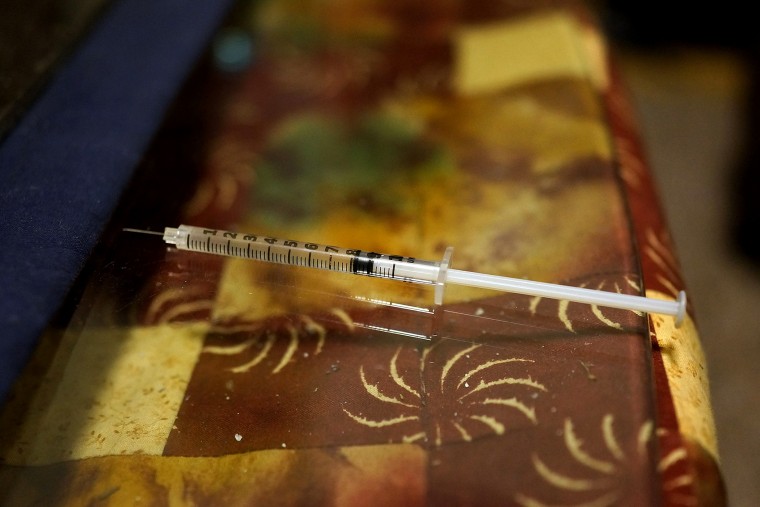The good news is, Congress has approved legislation addressing an important issue, and with bipartisan backing, the policy is on its way to becoming law. The bad news is, the bill should have been a whole lot better.
Congress sent President Barack Obama a compromise bill Wednesday aimed at curbing abuse of heroin and other drugs, a nationwide epidemic that kills more than 100 Americans every day. The overwhelming 92-2 Senate vote comes just days before the seven-week congressional break. It was a welcome political development for vulnerable Republicans such as Ohio's Rob Portman and New Hampshire's Kelly Ayotte, who pushed for the measure before they faced constituents.
This same bill passed the House by a similar margin a few days ago. As the New York Times' report explained, the measure intends to "strengthen prevention, treatment and recovery efforts, largely by empowering medical professionals and law enforcement officials with more tools to help drug addicts. It would also expand access to a drug that emergency medical workers could use to help reverse overdoses and improve treatment for the incarcerated."
The White House announced that President Obama will sign the bill, but the administration isn't exactly thrilled with the way the legislation turned out. "Congressional Republicans have not done their jobs until they provide the funding for treatment that communities need to combat this epidemic," the White House said in a written statement.
The process wasn't supposed to work this way. As regular readers may recall, in March, the Senate approved the Comprehensive Addiction and Recovery Act (CARA) on a 94-to-1 vote. Stakeholders assumed the bipartisan package was well on its way.
It wasn't. The GOP-led House said the Senate bill invested too much in prevention, and not enough in enforcement, so the lower chamber went its own way. Both chambers eventually passed their own competing alternatives, and the resulting compromise is what is now headed to the Oval Office for a signature.
But there's a reason Sen. Ron Wyden (D-Ore.) called the bill "a half-measure."
The editorial board of the New York Times noted this week that the legislation "would authorize addiction treatment and prevention programs to stem what has become a scourge and a disgrace -- more than 28,600 overdose deaths in 2014. But it contains not a penny to support those initiatives."
That's not an exaggeration. The bill sets worthwhile goals, but doesn't invest in treatment and prevention at all.
Republicans insist this is temporary, and they'll put some money into these efforts when lawmakers return from their lengthy summer break and get to work on pending appropriations bills. But (a) the money could have been included in this bill; (b) no one can say with certainty what will happen in September; and (c) according to congressional Republicans' own plan, they only plan to invest about half of the Obama administration says is necessary.
If we grade on a curve, and acknowledge that in recent years Congress has generally failed to do anything worthwhile, then sure, it's heartening that this package passed yesterday and will become law. But in a better Congress, this would have been a better bill.
